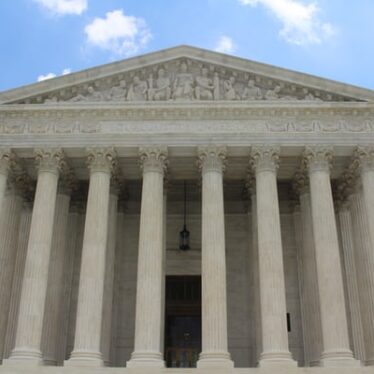With the COVID-19 pandemic adversely impacting both the state’s economy overall and individual businesses, the Rhode Island Superior Court, Presiding Justice Alice Bridget Gibney, issued an Order dated March 31, 2020 creating the Non-Liquidating Receivership Program (the “Non-Liquidating Program” or “Program”), which will provide relief for businesses affected by COVID-19. The Non-Liquidating Program will be administered by the Superior Court Business Calendar. The Non-Liquidating Program will provide Court-supervised protection to struggling businesses to enable them to remain in operation while they attempt to emerge from their economic circumstances.
Under traditional receivership law and practice in Rhode Island, the assets of a business that could no longer pay its debts as they come due would be liquidated under the supervision of the Superior Court. Typically, the Superior Court would appoint a receiver to act as an officer of the Court to oversee the liquidation of the business assets. After the assets of the business are liquidated, the business’ creditors would be paid using the sale proceeds. When possible, the business would be sold as a going concern to maximize the return for creditors.
The Non-Liquidating Program is different: its objective is to keep the business afloat so it can emerge from receivership. While the Program is newly implemented as a protection for businesses impacted by COVID-19, Rhode Island receivership courts have long had the equity power to conduct non-liquidating receiverships. See Levine v. Bess Eaton Donut Flour Co., 705 A.2d 980, 983 (R.I. 1998) (“The appointment of a nonliquidating receiver for an ongoing, solvent corporation is an extraordinary remedy that should be reserved for extraordinary situations.”).
To be eligible for relief under this Program, a business must not have been in default of its financial obligations as of January 15, 2020. In addition, the business must (1) have experienced a reduction of at least 20% in its gross revenues, over any 60-day period, since January 15, 2020; or (2) have been forced to cease a substantial portion of its operations, after January 15, 2020, due to governmental order or regulation; or (3) demonstrate that the COVID-19 pandemic created an adverse impact on its operations due to government-mandated closure (full or partial) or a substantial interruption of cash flow.
Under the Non-Liquidating Program, the owner(s) of a business (the “Petitioner”) can file for appointment of a Temporary Non-Liquidating Receiver. Within ten days of the appointment of such a Receiver, the Petitioner must submit a proposed Operating Plan, which must address three issues: (1) how the business will operate during the Non-Liquidating Receivership and pay its debts as they come due; (2) pre-petition debts; and (3) the plan for the business to exit the Non-Liquidating Program. The Temporary Non-Liquidating Receiver would review the proposed Operating Plan and work with the Petitioner to make any necessary revisions. Thereafter, the Temporary Non-Liquidating Receiver would submit the proposed Operating Plan to the Court, and provide copies to creditors and parties-in-interest, who would have ten days to submit any comments or objections. The Court would address any objections at a hearing, and ultimately approve or reject the proposed Operating Plan.
If the proposed Operating Plan is approved, the Temporary Non-Liquidating Receiver would be appointed as the Non-Liquidating Receiver (i.e., the permanent receiver). During the Non-Liquidating Receivership, the Petitioner would continue to operate the business; this is unlike an ordinary receivership, during which the receiver usually operates the business. The Non-Liquidating Receiver retains the ability, with notice to the Court, to take control of the business and its assets if the Petitioner does not comply with the Court-approved Operating Plan. As with an ordinary receivership, an injunction would enter prohibiting any actions against the assets of the business (i.e., injunction against lawsuits, imposition of liens, etc.).
If the Operating Plan succeeds, the business will exit the Non-Liquidating Program through a Court-approved exit plan, which would address how the business debts would be paid using the revenues obtained during the Non-Liquidating Receivership. Importantly, the Program does not permit the elimination or reduction of any debt; therefore, the exit plan must provide for payment of all debt. Of course, the parties to the case can agree to an exit plan that provides for payment of less than 100% of the pre-petition debt. However, the Court could not order such a result over a creditor’s objection.
If the Operating Plan does not succeed, or if no Operating Plan is ever approved by the Court, or if an exit plan is not approved by the Court, then liquidation of the business could proceed. If the Operating Plan has been approved by the Court, then the case would proceed to liquidation if, after a hearing, the Court finds that the Petitioner defaulted under the Operating Plan.
Although the Non-Liquidating Program is new to receivership in Rhode Island, the concept of providing a distressed business the time and space to recover from adverse economic circumstances is not unfamiliar to the law of insolvency. This concept also underlies the bankruptcy reorganization provisions under Chapter 11 of the Bankruptcy Code. There are many differences between a Chapter 11 bankruptcy and Rhode Island’s Non-Liquidating Program. For example, debt can be reorganized and reduced in a Chapter 11 bankruptcy, but not under the Program. It is important to note, however, that cases under the Program likely will proceed in a more streamlined, flexible, quicker, and less expensive manner than a Chapter 11 bankruptcy.
According to the news advisory from the Rhode Island Judiciary, quoting Associate Justice Brian P. Stern, “Rhode Island businesses deserve the opportunity to stabilize their operations and generate revenues again.” The new Non-Liquidating Program will guide Rhode Island businesses through the financial hardships caused by the COVID-19 pandemic and help them emerge as viable going concerns.







